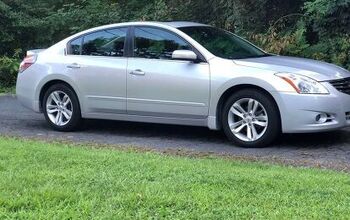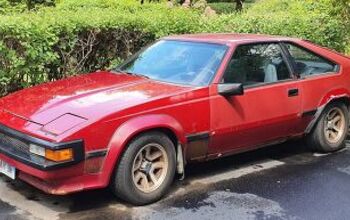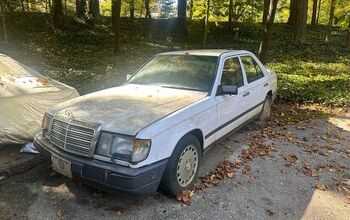Ford to Launch Data Monitoring/Analytics Program on Commercial Fleets

We’ve prattled on before about how General Motors sees data mining as its next big business opportunity. While much of our take focused on the risk that customers might lose their privacy and become both commodity and consumer, it would be stupid to suggest it isn’t also a highly lucrative business strategy.
Social media outlets sell your personal information on a daily basis and other industries see potential in that. GM isn’t the only automaker jumping on the bandwagon, it’s simply the one with the most transparent blueprint.
Ford recently opened up about its own data strategy. The company previously announced large investments into data centers, stating its intent to equip 90 percent of its global fleet with modem connectivity by 2020. Ford Smart Mobility was also reorganized earlier this year, an effort that included the acquisition of two tech firms focused on transit data. The automaker split the group to focus on key areas: transportation data, marketing, tech development, and the management of previously established programs like FordPass and Chariot.
Ford obviously had a plan in the works for a while, but we didn’t know exactly what Ford’s execution would look like until now.
On Thursday, the automaker stated its intent to deliver total percent connectivity across its vehicle lineup, starting with its commercial fleet. Ford Commercial Solutions will introduce two new connected vehicle products designed to provide management with key insights into fleet and driver performance.
“Business owners and operators want to serve their customers, not spend excessive time managing their fleets,” said Lee Jelenic, CEO of Ford Commercial Solutions. “Our goal is to unlock the data from their vehicles to provide them with more effective ways to manage their fleets and improve operations. Our new products are tailored to serve fleets of all types, whether they’re run by law enforcement, composed predominantly of Ford vehicles, or are large multi-make fleets that want more insight from their Ford vehicles.”
While the company’s new “Data Services” product is intended for the management of larger fleets, the tool can focus on an individual vehicle’s GPS location, mileage, fuel consumption, mechanical health, driver behavior, and more. The data can also be amassed and then analyzed to help companies make smarter decisions. Ford said it has reached service agreements with connected-vehicle companies Geotab and Spireon to give fleet operators a choice of what telematics service they prefer, thanks to the automaker’s ongoing partnership with Verizon.
The tool intended for law enforcement is similar, but includes data on carbon dioxide emissions and seatbelt usage. Ford plans to relegate it to police vehicles, instead of commercial variants of the Transit, Transit Connect, and F-Series. While both cloud-based services will be available on newer cars right away, the automaker said vehicles lacking modems will be still be able to take advantage of Ford Commercial Solutions’ products — the company is launching a plug-in device that allows fleets to connect vehicles dating back to the 2012 model year.
Despite the fact that the very mention of data mining is producing Orwellian vibrations at the base of every skeptic’s brainstem, there’s not too much to be alarmed about here. Sure, Ford could theoretically sell the accumulated information to other companies, but we expect every business’ legal team would have something to say about it. What we’re seeing instead is Ford taking useful data from specific companies and then selling it back to them. The worst-case scenario we can imagine is employees taking shorter lunch breaks and fewer side trips on a delivery.
That’s no assurance of what’s to come in the future, though. Ford could pursue GM’s model of personalized in-car marketing and data sales in the coming decade, but we’ll wait to cry wolf once we’ve actually seen one. The company has been very clear that it doesn’t want to get ahead of itself, and hopes to prove the financial viability for all advanced technologies and new businesses.
[Image: Ford Motor Co.]

A staunch consumer advocate tracking industry trends and regulation. Before joining TTAC, Matt spent a decade working for marketing and research firms based in NYC. Clients included several of the world’s largest automakers, global tire brands, and aftermarket part suppliers. Dissatisfied with the corporate world and resentful of having to wear suits everyday, he pivoted to writing about cars. Since then, that man has become an ardent supporter of the right-to-repair movement, been interviewed on the auto industry by national radio broadcasts, driven more rental cars than anyone ever should, participated in amateur rallying events, and received the requisite minimum training as sanctioned by the SCCA. Handy with a wrench, Matt grew up surrounded by Detroit auto workers and managed to get a pizza delivery job before he was legally eligible. He later found himself driving box trucks through Manhattan, guaranteeing future sympathy for actual truckers. He continues to conduct research pertaining to the automotive sector as an independent contractor and has since moved back to his native Michigan, closer to where the cars are born. A contrarian, Matt claims to prefer understeer — stating that front and all-wheel drive vehicles cater best to his driving style.
More by Matt Posky
Latest Car Reviews
Read moreLatest Product Reviews
Read moreRecent Comments
- Arthur Dailey The longest we have ever kept a car was 13 years for a Kia Rondo. Only ever had to perform routine 'wear and tear' maintenance. Brake jobs, tire replacements, fluids replacements (per mfg specs), battery replacement, etc. All in all it was an entirely positive ownership experience. The worst ownership experiences from oldest to newest were Ford, Chrysler and Hyundai.Neutral regarding GM, Honda, Nissan (two good, one not so good) and VW (3 good and 1 terrible). Experiences with other manufacturers were all too short to objectively comment on.
- MaintenanceCosts Two-speed transfer case and lockable differentials are essential for getting over the curb in Beverly Hills to park on the sidewalk.
- MaintenanceCosts I don't think any other OEM is dumb enough to market the system as "Full Self-Driving," and if it's presented as a competitor to SuperCruise or the like it's OK.
- Oberkanone Tesla license their skateboard platforms to other manufacturers. Great. Better yet, Tesla manufacture and sell the platforms and auto manufacturers manufacture the body and interiors. Fantastic.
- ToolGuy As of right now, Tesla is convinced that their old approach to FSD doesn't work, and that their new approach to FSD will work. I ain't saying I agree or disagree, just telling you where they are.


































Comments
Join the conversation
I live my life like a canary in a data mine.
They can have my data when they pry it from my cold, dead hands.